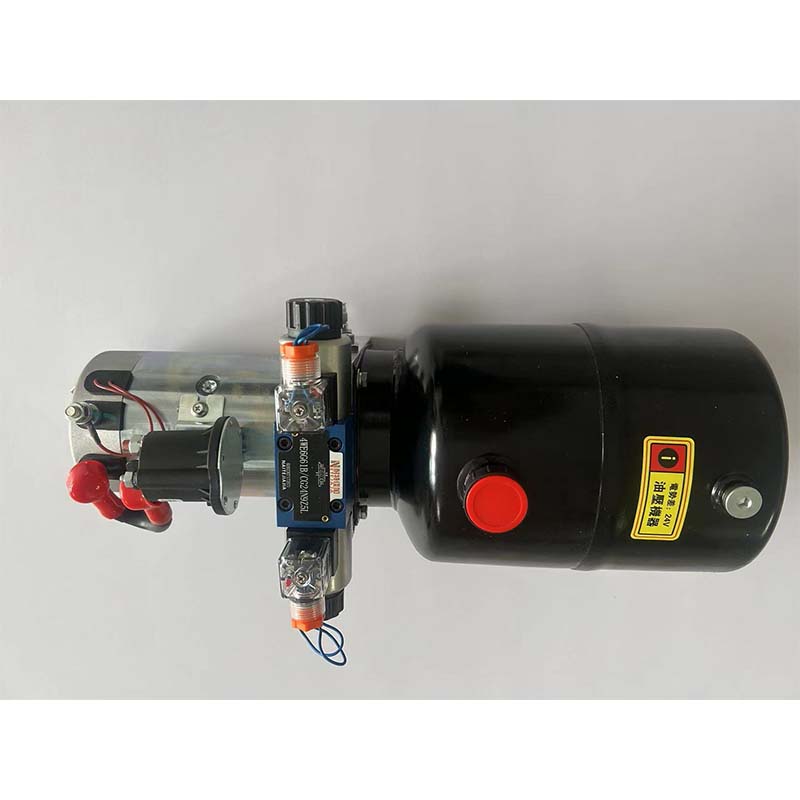12월 . 13, 2024 05:17 Back to list
Hydraulic Cylinders for Steering Solutions in Automotive and Industrial Applications
The Importance of Hydraulic Cylinders for Steering Systems in Modern Vehicles
In the realm of automotive engineering, hydraulic systems play a quintessential role in enhancing vehicle performance and safety. Notably, hydraulic cylinders have emerged as a pivotal component in steering mechanisms, offering reliability and precision essential for effective vehicle maneuverability. This article delves into the functionality, advantages, and applications of hydraulic cylinders in steering systems, emphasizing their significance in contemporary automotive design.
Understanding Hydraulic Cylinders
Hydraulic cylinders are mechanical devices that utilize pressurized hydraulic fluid to generate motion. They consist of a cylindrical barrel, a piston, and a rod. When hydraulic fluid enters the cylinder, it forces the piston to move within the barrel, consequently extending or retracting the rod. This linear motion is harnessed in various applications, and one of the most crucial applications is in vehicle steering systems.
The Role of Hydraulic Cylinders in Steering
In steering systems, hydraulic cylinders provide the necessary force to convert rotational motion into linear motion, facilitating precise steering inputs from the driver. By assisting the steering mechanism, these cylinders enable better control and responsiveness, ensuring that vehicles can handle various driving conditions effortlessly.
1. Enhanced Control Hydraulic cylinders offer enhanced steering control, allowing drivers to make quick and precise adjustments while navigating. This is especially important in high-speed situations or in environments requiring tight turns. The reliable assistance provided by hydraulic systems ensures that vehicles remain stable and maneuverable.
2. Effort Reduction One of the significant advantages of hydraulic cylinders in steering systems is the reduction of effort required by the driver. Traditional mechanical linkages often require substantial physical force to operate, particularly in larger vehicles. Hydraulic assistance significantly lowers this force, making it easier for drivers to control heavy machinery or larger vehicles with minimal exertion.
3. Improved Comfort and Safety The smooth operation of hydraulic cylinders leads to improved driving comfort. A well-functioning hydraulic steering system minimizes vibrations and provides a more enjoyable driving experience. Additionally, precise control contributes to safety, as drivers can respond more effectively to unexpected road conditions.
hydraulic cylinder for steering company

Applications in Modern Vehicles
The application of hydraulic cylinders in automotive steering systems has transcended conventional passenger vehicles and is now integral to a myriad of automotive sectors, including
- Commercial Vehicles Trucks and buses, which often have larger frames and increased weight, benefit significantly from hydraulic steering. The force amplification provided by hydraulic cylinders enhances maneuverability, even in street-heavy urban environments.
- Agricultural Machinery Hydraulic steering is vital in tractors and farming equipment, which frequently operate in rugged terrains. The responsiveness of hydraulic systems allows farmers to navigate challenging landscapes with ease.
- Construction Equipment Heavy machinery such as excavators and bulldozers also rely on hydraulic cylinders for steering. The robust design of hydraulic systems facilitates precise control over movement and operations in construction zones.
Future Innovations
The future of hydraulic cylinders in steering systems looks promising. As automotive technology continues to advance, innovations such as electric-assist steering and integrated hydraulic-electronic systems are becoming more prevalent. These technologies aim to combine the benefits of hydraulic systems with the precision and adaptability of electronic controls, potentially leading to even greater efficiencies and functionalities.
Conclusion
Hydraulic cylinders are indispensable components of modern steering systems, providing enhanced control, reduced effort, and improved safety for drivers. The versatility of hydraulic technology has established its utility across various automotive sectors, from commercial transport to agricultural and construction equipment. As advancements in automotive engineering continue, the role of hydraulic cylinders will undoubtedly evolve, paving the way for smarter and more efficient steering solutions. Ultimately, the integration and innovation surrounding hydraulic technology will continue to shape the future of vehicle performance and driver experience.
-
1.5 Ton Flipping Oil Cylinder 70/82-40-217-720-Hebei Shenghan Hydraulic Machinery|Precision Hydraulic Cylinder,Custom Hydraulic Solutions
NewsAug.29,2025
-
1.5 Ton Flipping Oil Cylinder 70/82-40-217-720 | Hebei Shenghan Hydraulic Machinery Co., Ltd.
NewsAug.29,2025
-
High-Precision [90/105-50-180-480] Industrial Component | Durable & Reliable
NewsAug.27,2025
-
High-Performance Set of 50/60-45-290 471 | Durable & Reliable Components
NewsAug.26,2025
-
Efficient Pallet Truck Power Units - Reliable Hydraulic Systems
NewsAug.25,2025
-
Premium Set of 50/60-45-290 471 Parts | High Performance
NewsAug.24,2025
